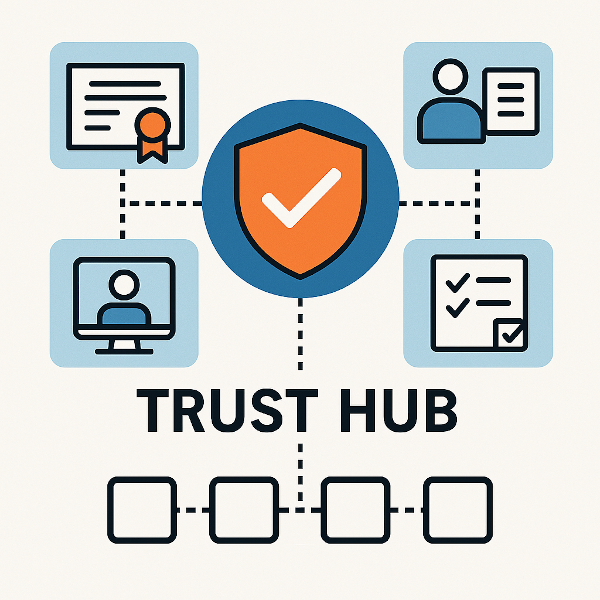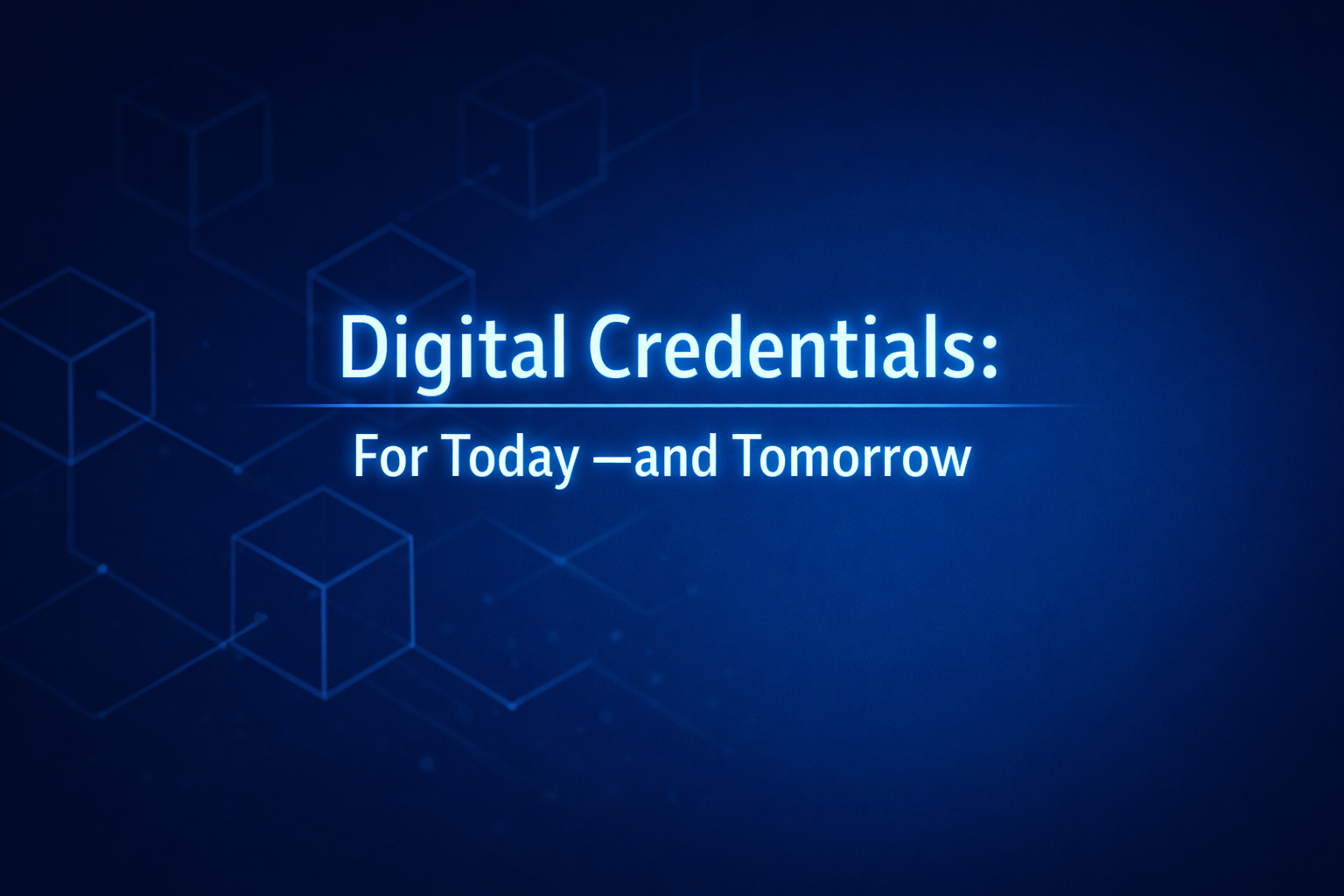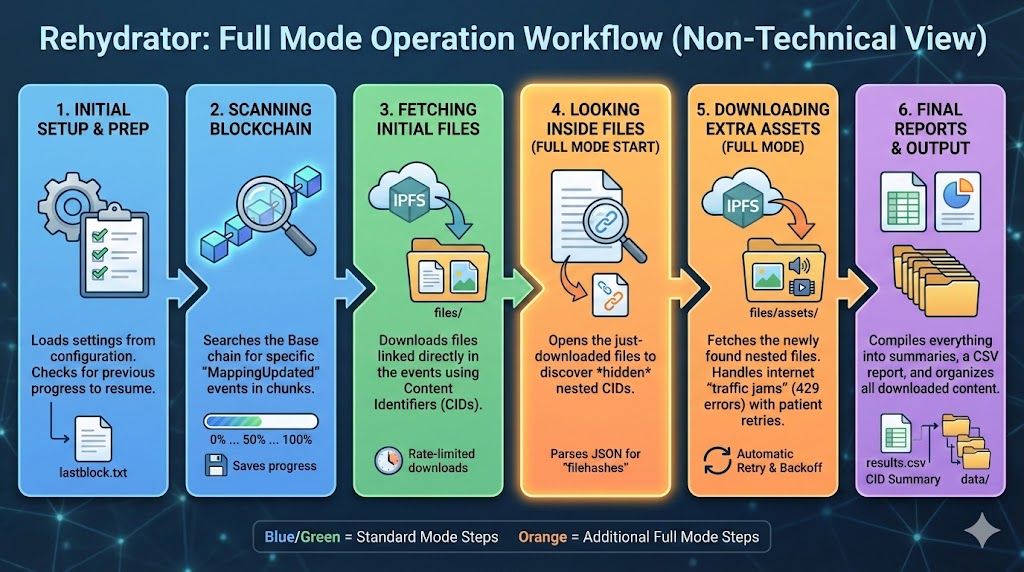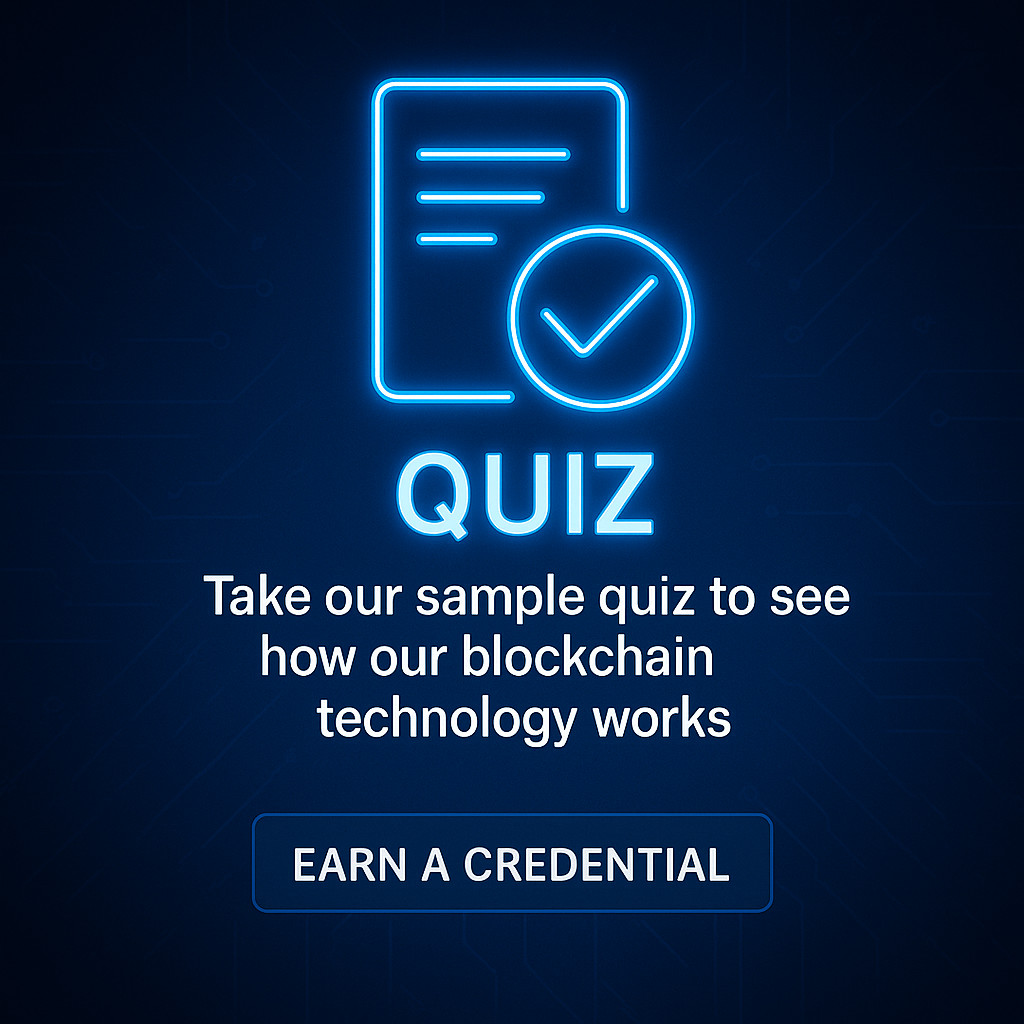by Chainletter Labs
Share
by Chainletter Labs

In today’s digital economy, trust has become both harder to earn and more essential than ever. We buy products online without ever meeting the seller. We hire employees we’ve only seen on video calls. We share critical data across borders with organizations we’ve never physically visited. This borderless world demands new ways to verify people, records, and transactions—quickly, reliably, and securely.
That’s where trust hubs come in.
A trust hub is an organization that serves as a central, credible source for issuing, validating, and safeguarding important information about identities, credentials, assets, or events. When a trust hub uses blockchain technology to protect this information, it creates a decentralized, tamper-proof, instantly verifiable foundation of truth that everyone can rely on.
Let’s unpack this idea in more detail.
Why Trust Is So Difficult to Scale
Traditional systems of trust depend on one or more intermediaries. For example:
- Universities certify that a student earned a degree.
- Government agencies issue licenses and IDs.
- Banks attest to account balances and credit histories.
- Auditors verify compliance and financial records.
Historically, these certifications relied on paper documents, wet signatures, or centralized databases. But these methods have several problems:
- Easy to forge: Paper diplomas, certificates, and IDs can be faked.
- Hard to verify remotely: Third parties must call or email to confirm authenticity.
- Opaque: Data is locked in proprietary systems, out of reach for real-time checks.
- Prone to errors and delays: Manual processes are slow and subject to mistakes.
The rise of blockchain—an immutable, transparent ledger—solves many of these challenges. It lets an organization issue records that cannot be altered or counterfeited and that can be verified instantly anywhere in the world.
What Makes a Trust Hub?
A trust hub has three core functions:
- Issuance of Validated Data
It certifies something is true—like awarding a diploma, issuing a professional license, recording a supply chain transaction, or verifying an identity. - Protection of Data Integrity
It uses blockchain to lock this record in a cryptographically secure form that cannot be modified or deleted without network consensus. - Verification Services
It provides ways for others—employers, regulators, customers—to confirm that the record is genuine and unchanged.
This combination makes a trust hub both the source and the guardian of critical verified information.
Examples of Trust Hubs
Any organization that regularly issues or manages high-stakes data can become a trust hub. Examples include:
- Universities and Training Providers: Issuing blockchain-protected degrees, certificates, and micro-credentials.
- Government Agencies: Providing verified IDs, business licenses, land titles, and tax records.
- Professional Associations and Licensing Boards: Certifying members and maintaining up-to-date credentials.
- Supply Chain Certifiers: Attesting to product origin, compliance, and authenticity.
- Financial Institutions: Confirming account ownership, credit status, or transaction history.
Blockchain as the Backbone of Trust
A trust hub powered by blockchain enjoys several advantages over conventional data systems:
Tamper-Proof Records
Once data is recorded on the blockchain, it cannot be altered without detection. This dramatically reduces the risk of fraud.
Decentralized Verification
Anyone with the correct access can verify the record without relying on the issuer to respond manually.
Transparency and Auditability
Blockchain maintains a transparent trail of record creation and updates, supporting compliance and audit requirements.
Data Portability
Users can carry their verified records in a digital wallet and present them wherever needed—job applications, government services, vendor onboarding—without duplicative paperwork.
Trust Hubs as a New Business Model
Beyond operational improvements, serving as a trust hub can become a revenue-generating strategy:
- Charging fees each time a record is verified by a third party.
- Offering premium verification services for employers, regulators, or partners.
- Providing secure digital identity wallets as a subscription product.
This approach transforms trust itself into a monetizable asset.
Why Trust Hubs Matter Now
In an age of synthetic identities, AI-generated forgeries, and cybercrime, verifying who someone is—and what they have accomplished—will only become more critical. Organizations that build blockchain-powered trust hubs will set the standard for credibility in their industries.
They won’t just be record keepers.
They will be pillars of confidence in a world where trust is harder and harder to find.
Conclusion
A trust hub is any organization that issues validated information, secures it using blockchain, and provides efficient, reliable verification services to others. By combining technological integrity with their existing authority, trust hubs can reshape how businesses, institutions, and individuals prove authenticity—while opening up new opportunities for revenue, reputation, and relevance in the digital age.




